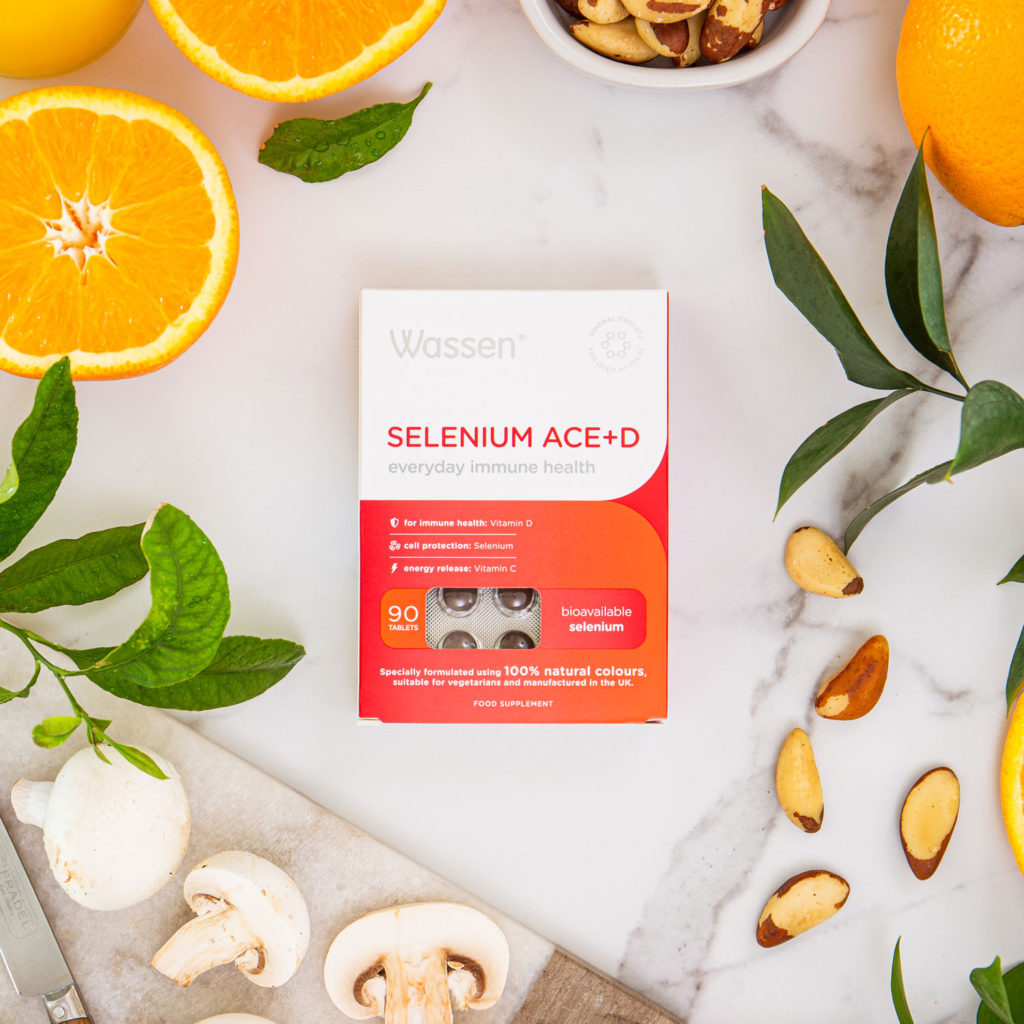5 Ways To Give Your Immune System A Boost

Personal wellbeing and self-care are at the forefront of the nation’s minds as we prepare for a challenging winter ahead. Why not think of your immune system as your own personal army?
Here are five positive changes you can make this season…
1 Make food choices for immune support
Supporting your immune function with the right vitamins and minerals from your diet is the first port of call for all of us, including the young, old and those with busy lives. Research has shown the essential nutrients that help achieve a healthy functioning immune system include:
- Vitamin D– Vitamin D contributes to the normal function of the immune system. In addition, the UK Government have now recommended that adults and children over 5 years old supplement 10µg vitamin D in the winter months. Sources of vitamin D include oily fish, red meat and egg yolks.
- Selenium – a mineral that is important for a healthy functioning immune system. A recent review in 2015 indicated that selenium amongst other beneficial vitamins is a safe addition to help support the immune system. Selenium is found in Brazil nuts, tuna, pork, beef, chicken, tofu, whole wheat pasta, shrimp/prawns, and mushrooms.
- Vitamin A – a nutrient important for a healthy immune system. Ensuring you have a good variety of highly coloured vegetables such as sweet potatoes, carrots or spinach can help make sure that you have enough Vitamin A.
- Vitamin C – Make sure you eat plenty of Vitamin C rich foods such as oranges, strawberries, kale and kiwis to ensure you hit not only your five-a-day, but get enough Vitamin C to help keep your immune function healthy.
- Vitamin E – A important lipid-soluble antioxidant and one of the most effective nutrients known to protect your cells from de-stabilising oxidative stress. Good choices for Vitamin E include nuts e.g. almonds and seeds e.g. sunflower or pumpkin plus green leafy vegetables.
2 Reduce Toxins
Toxins such as smoking and alcohol. The immune system is a highly evolved series of defences against external organisms and internal toxins and is a system constantly on red alert. By overloading it with unnecessary environmental toxins you could overwork your immune system.
3 Increase exercise which helps flush unwanted debris and bacteria out of our lungs and airways
The lymph system is a network of small vessels which drag damaged cells back to lymph glands in the neck, armpit or groin. These can get bigger when the immune system is triggered and immune cells are produced. This transport system relies on physical movement, so make sure you take regular exercise and/or movement, whether this is daily walking with the dog or a yoga session. The NHS recommend adults aged 19-64 should do at least 150 minutes of moderate intensity activity a week or 75 minutes of vigorous intensity activity a week.
4 Improve Sleep
Poor sleep can affect your immune system. Without sufficient sleep, your body doesn’t get the chance to recharge ready for action. Look at your bedtime ritual to see how you can improve it.
- Stop screen time up to an hour before bedtime to reduce visual stimulation.
- Take a bath and read a book to relax
- De-clutter your bedroom to create a harmonious and relaxing environment.
- Try Lavender oil on your pillow to help encourage restful thoughts.
5 Take a supplement packed full of vitamins and minerals for healthy immune function.
If you are feeling like a little extra reassurance, a good start is to look for a supplement such as Wassen’s Selenium ACE+D, £11.99, packed full of Vitamins A,C D along with minerals Zinc and Selenium. Selenium is central to a healthy working immune function and helps to protect cells from oxidative stress.











